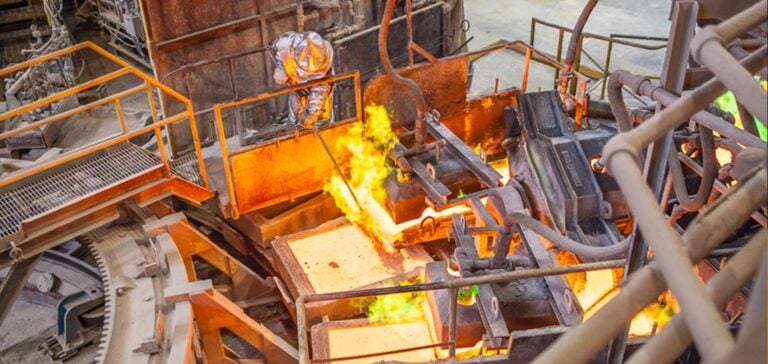Redirecting copper supply chains away from China poses a major challenge for global economies.
According to an analysis by Wood Mackenzie, this move could not only generate colossal costs, but also delay energy transition targets.
The study estimates that it would cost around $85 billion to establish new smelting and refining capacity outside China.
Worldwide demand for copper, essential for electrification, is growing significantly.
Projections indicate a 75% increase by 2050, reaching 56 million tonnes per year.
Against this backdrop, production capacity must adapt rapidly to meet this unprecedented demand.
Chinese dominance in the copper sector
China is at the heart of the global copper industry, controlling 97% of smelting and refining capacity.
Since 2000, it has been the main driver of capacity growth, accounting for over 75% of new installations worldwide.
These massive investments, in excess of $25 billion, have enabled China to add 3 million tonnes to its annual copper production.
This predominance has direct implications for attempts at diversification.
New facilities planned in India, Indonesia and the Democratic Republic of Congo, while important, remain marginal in relation to Chinese infrastructure.
In addition, regulatory challenges in Europe, such as the Carbon Adjustment Mechanism at the European Union’s borders, could hamper the competitiveness of European players vis-à-vis China.
Geopolitical and industrial issues
The reconfiguration of copper supply chains also raises geopolitical issues.
China has established its dominance not only through the size of its capacities, but also through the efficiency and modernization of its facilities.
The Chinese model, characterized by efficient sulfur dioxide capture and low production costs, contrasts with the challenges faced by European and North American producers. In the USA and Europe, the emphasis is more on recycling and secondary copper processing, rather than on expanding primary smelting capacity.
The secondary smelting project in Georgia, USA, while pioneering, remains insufficient to compete with China’s industrial might.
Outlook for the energy transition
As initiatives to diversify copper supply chains multiply, they face significant obstacles.
The financing of new production capacity is hampered by environmental and social concerns, particularly in Europe, where opposition to the opening of new smelters is particularly strong.
Against this backdrop, China’s dominance of the copper supply chain looks unlikely to be shaken in the short term.
Decision-makers’ strategic choices will have to balance the need to diversify supply sources with industrial and financial realities.
Current trade restrictions may also require adjustments to enable a smooth energy transition without exorbitant costs for taxpayers.






















